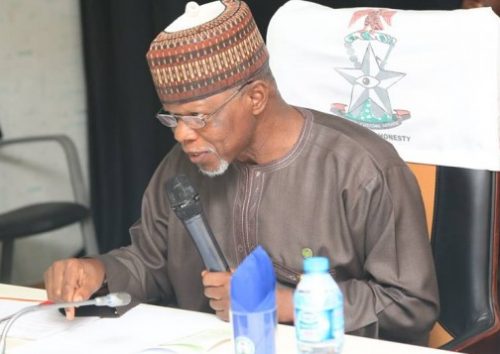
The Nigeria Customs Service (NCS) has asked the Federal Government to reduce the import duty on vehicles from 35% to 5%.
The Comptroller-General of Customs, Hameed Ali, said this while defending the NCS’ 2020 budget before the House Committee on Customs in Abuja recently.
According to him, the proposal was made with the aim of increasing Customs revenue and discouraging smuggling as Nigerian importers currently ship their containers to neighbouring ports where duties and levies are very low compared to what obtains in Nigeria.
Ali said: “We have forwarded a proposal for the downward review of vehicle tariff to our supervising Ministry, which is the Finance Ministry, for consideration so that Customs duty on imported vehicles remain 35%, while the levy be reduced from the current 35% to 5 or 10%. This position, if approved, will encourage compliance and boost revenue because the 70% duty and levy is encouraging smuggling of vehicles”, Ali told the legislators.
Ali also disclosed that the Service was advocating for the reintroduction of import taxes on petroleum products.
“The petroleum tax regime of 2004 before its suspension imposed N1.50k per litre of petroleum products. It is the considered opinion of the Service that this regime be reintroduced in line with international best practices as it’s currently operational in over 36 countries at an average of $2.24 per gallon”.
He also listed some factors that were militating its aggressive revenue generation.
“We could have done more in revenue generation but there are factors that made it difficult. We have government policies like 43 items that were banned from forex access by the CBN. It narrowed down imports due to forex restrictions. It reduced import and duties we collected. Secondly, most scanners are not working and it necessitated 100% physical examination of cargo.
“It hampered electronic examination of containers, which is faster and ensures quicker vessel turnaround.
These scanners were procured in 1997. They came under a maintenance contract sort of arrangement but we introduced politics into it. We removed those foreigners hitherto handling them and put indigenous hands and they have died. We should not buy those type of scanner again. They keep requiring upgrade of software and systems and we can’t keep up,” he said.
Copyright Ships & Ports Ltd. Permission to use quotations from this article is granted subject to appropriate credit given to www.shipsandports.com.ng as the source.